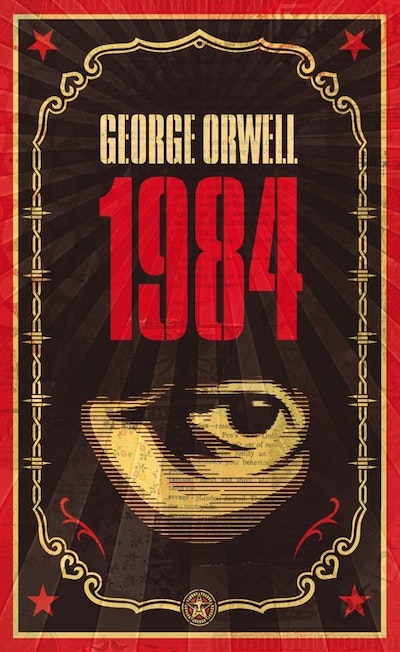

War is peace.
Freedom is slavery.
And Big Brother is watching…
Thought Police. Big Brother. Orwellian. These words have become part of our national vocabulary because of George Orwell’s classic novel 1984, the story of one man’s nightmare odyssey through a world ruled by warring states and a power structure that controls not only information but individual thought and memory. A minor functionary named Winston Smith joins a covert brotherhood and pursues a forbidden love affair against the cold, gray backdrop of the Republic of Oceania—only to become a hunted enemy of the state… and of Big Brother.
Today, half a century after it was written, Orwell’s prophetic, haunting tale of conformity and identity strikes a disturbing chord. As we follow Winston Smith through his rebellion, imprisonment, torture, and reeducation, we witness firsthand the worst crime we can inflict upon ourselves and others: the destruction of the truths and freedoms that make us who we are.
Orwell was a socialist, the direct result of his service as a militiaman on the Republican side against the Fascist general Francisco Franco in the Spanish Civil War. Upon his return to England he joined the British Independent Labour Party and began to write against Stalinism and the Nazi regime. Orwell was also influenced by anarchist critiques of Soviet communism and by the Marxist writings of Leon Trotsky, the exiled communist revolutionary and model for Emmanuel Goldstein in Nineteen Eighty-Four. In 1946 Orwell wrote, “Every line of serious work that I have written since 1936 has been written, directly or indirectly, against totalitarianism and for democratic socialism, as I understand it.”

George Orwell was born in India in 1903 and educated at Eton College. From 1922 to 1928, he served in the Imperial Police in Burma. During the Spanish Civil War, he fought on the Republican side and was severely wounded. With the outbreak of World War II, Orwell returned to England, became a member of the Home Guard, and worked for the BBC. He wrote literary and political commentary for British magazines and newspapers and contributed to periodicals in the United States. He died in London in 1950.